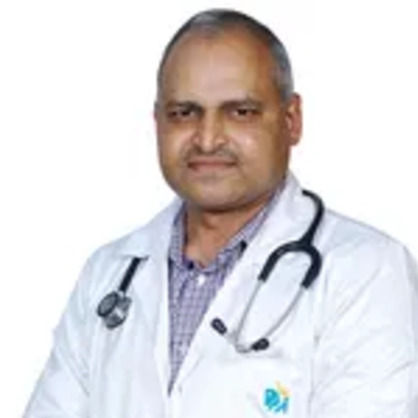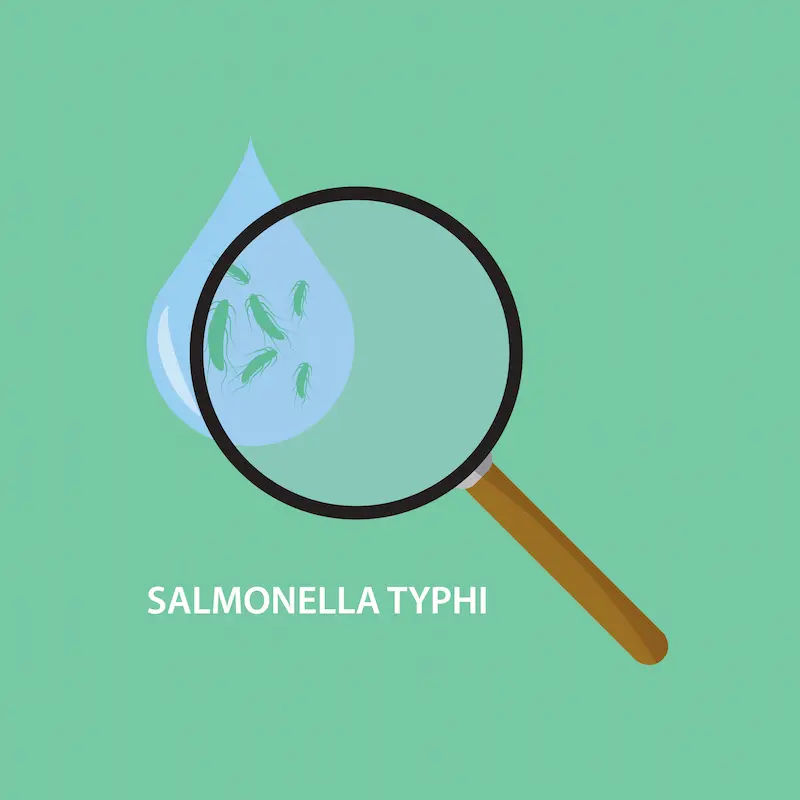Causes and Treatment of Splenomegaly
Learn about splenomegaly (enlarged spleen), its common causes, symptoms, diagnosis methods, and treatment options, including medications, lifestyle changes, and surgery.

Written by Dr. Siri Nallapu
Reviewed by Dr. D Bhanu Prakash MBBS, AFIH, Advanced certificate in critical care medicine, Fellowship in critical care medicine
Last updated on 13th Jan, 2026

The spleen is an important organ located under your ribcage on the left side of your abdomen. It plays a key role in filtering blood, fighting infections, and storing healthy blood cells. However, sometimes the spleen can become enlarged—a condition called splenomegaly.
If you or a loved one has been diagnosed with splenomegaly, you may have questions about what causes it and how it can be treated. This article will help you understand the condition in simple terms, along with ways to manage it effectively.
What Causes Splenomegaly?
An enlarged spleen can result from various underlying conditions. Some common causes include:
1. Infections
- Viral infections like mononucleosis (caused by the Epstein-Barr virus)
- Bacterial infections such as syphilis or endocarditis
- Parasitic infections like malaria
2. Liver Diseases
- Cirrhosis (scarring of the liver)
- Portal hypertension (increased blood pressure in the liver’s blood vessels)
3. Blood Disorders
- Leukemia (cancer of the blood cells)
- Lymphoma (cancer of the lymphatic system)
- Hemolytic anemia (where red blood cells are destroyed faster than they are made)
4. Autoimmune Diseases
- Lupus (where the immune system attacks healthy tissues)
- Rheumatoid arthritis
5. Other Causes
- Cysts or tumors in the spleen
- Metabolic disorders like Gaucher’s disease
Consult a Specialist for Personalised Advice
Symptoms of an Enlarged Spleen
Many people with splenomegaly may not notice any symptoms. However, if the spleen grows too large, it can cause:
- Pain or discomfort in the upper left abdomen
- Feeling full quickly (even after a small meal) because the spleen presses on the stomach
- Fatigue or weakness due to anemia
- Frequent infections (since the spleen helps fight infections, an enlarged spleen may not work properly)
- Easy bruising or bleeding (if platelet levels drop)
If you experience any of these symptoms, it’s important to see a doctor for further evaluation.
How Is Splenomegaly Diagnosed?
Doctors may detect an enlarged spleen during a physical exam by gently pressing on your abdomen. To confirm the diagnosis and find the underlying cause, they may recommend:
- Blood tests (to check for infections, anemia, or liver problems)
- Imaging tests (such as an ultrasound, CT scan, or MRI)
- Biopsy (in rare cases, a small tissue sample may be taken for testing)
If you need to schedule a diagnostic test, you can easily book a scan or blood test through Apollo 24|7 from the comfort of your home.
Get Your Health Assessed
Treatment Options for Splenomegaly
The treatment depends on the underlying cause. Here are some common approaches:
1. Treating the Underlying Condition
- For infections: Antibiotics or antiviral medications may be prescribed.
- For blood disorders: Medications or blood transfusions may help.
- For liver disease: Managing liver health with diet and medications is key.
2. Surgery (Splenectomy)
In severe cases; especially if the spleen is very large, causing pain, or at risk of rupture, doctors may recommend removing the spleen (splenectomy). However, since the spleen helps fight infections, people without a spleen need to take extra precautions, such as:
- Getting vaccinations (like pneumococcal and flu vaccines)
- Taking antibiotics as a preventive measure in some cases
3. Lifestyle Changes
If you have a mildly enlarged spleen, your doctor may suggest:
- Avoiding contact sports (to prevent injury to the spleen)
- Eating a balanced diet (to support immune function)
- Staying hydrated (to help overall health)
When to See a Doctor
Seek medical attention if you notice:
- Severe pain in the upper left abdomen (could indicate a ruptured spleen)
- Persistent fatigue or frequent infections
- Unexplained weight loss
If you’re unsure about your symptoms, you can consult a doctor online through Apollo 24|7 for expert advice.
Final Thoughts
Splenomegaly is not a disease itself but a sign of an underlying health issue. The good news is that with proper diagnosis and treatment, many people can manage the condition effectively. If you suspect an enlarged spleen, don’t ignore it; early detection and care can make a big difference.
Consult a Specialist for Personalised Advice
Consult a Specialist for Personalised Advice

Dr. Rajib Ghose
General Physician/ Internal Medicine Specialist
25 Years • MBBS
East Midnapore
VIVEKANANDA SEBA SADAN, East Midnapore

Dr. Aakash Garg
Gastroenterology/gi Medicine Specialist
12 Years • MBBS, DNB (Medicine), DrNB (Gastroentrology).
Bilaspur
Apollo Hospitals Seepat Road, Bilaspur
(150+ Patients)

Dr. Nirmal Mathew Alex
General Physician/ Internal Medicine Specialist
17 Years • MBBS, MD(general medicine)
Angamaly
Apollo Hospitals Karukutty, Angamaly
(75+ Patients)

Dr. S Vijayaraghavan
General Physician/ Internal Medicine Specialist
31 Years • MD (Gen. Med.)
Chennai
Apollo Speciality Hospitals OMR, Chennai
(175+ Patients)

Dr. Dhanraj K
General Physician/ Internal Medicine Specialist
25 Years • MBBS, MD Internal Medicine - Osmania Medical College, Hyderabad
Hyderabad
Apollo Hospitals Jubilee Hills, Hyderabad
(425+ Patients)
Consult a Specialist for Personalised Advice

Dr. Rajib Ghose
General Physician/ Internal Medicine Specialist
25 Years • MBBS
East Midnapore
VIVEKANANDA SEBA SADAN, East Midnapore

Dr. Aakash Garg
Gastroenterology/gi Medicine Specialist
12 Years • MBBS, DNB (Medicine), DrNB (Gastroentrology).
Bilaspur
Apollo Hospitals Seepat Road, Bilaspur
(150+ Patients)

Dr. Nirmal Mathew Alex
General Physician/ Internal Medicine Specialist
17 Years • MBBS, MD(general medicine)
Angamaly
Apollo Hospitals Karukutty, Angamaly
(75+ Patients)

Dr. S Vijayaraghavan
General Physician/ Internal Medicine Specialist
31 Years • MD (Gen. Med.)
Chennai
Apollo Speciality Hospitals OMR, Chennai
(175+ Patients)

Dr. Dhanraj K
General Physician/ Internal Medicine Specialist
25 Years • MBBS, MD Internal Medicine - Osmania Medical College, Hyderabad
Hyderabad
Apollo Hospitals Jubilee Hills, Hyderabad
(425+ Patients)



.webp)


